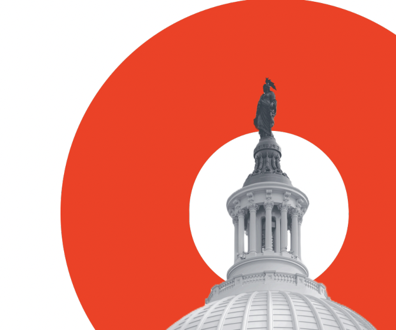Cost of CSRS retirement fix pegged at $40 million over 10 years
But Congressional Budget Office says bill to allow agencies to rehire retirees is budget-neutral.
A bill aimed at modifying the way retirement benefits are calculated for certain federal employees who work part-time at the end of their careers would cost the government $39 million from 2010 to 2019, the Congressional Budget Office reported this week.
The legislation (S. 469), sponsored by Sen. George Voinovich, R-Ohio, would modify the way retirement annuities are calculated for employees covered under the Civil Service Retirement System. Currently, CSRS employees who retire with part-time service late in their careers could see reduced annuities.
According to the CBO report, the bill would provide an average of $2,000 more in retirement benefits per year for about 650 of the expected retirees from the CSRS system in 2010. Additional retirements by 2019 would boost the overall cost of the measure to $39 million, according to CBO.
At the same time, the budget office reported, a bill that would let agencies rehire retirees without cutting their annuities would not cost taxpayers extra.
The bill (S. 629), sponsored by Sen. Susan Collins, R-Maine, aims to give federal agencies greater flexibility to hire back retirees on a limited part-time basis. Supporters say it will give agencies a way to quickly hire experienced workers to help deal with issues such as administering economic stimulus funds, while critics -- such as the American Federation of Government Employees -- claim that it would circumvent fair hiring processes.
The CBO report on the bill said agencies would likely hire retirees whether or not the legislation passed. Already, more than 1,800 retirees are working for the government, and that doesn't include employees at the Defense Department. Agencies currently must request waivers of the annuity cuts from the Office of Personnel Management.
"The bill would primarily reduce the administrative burden of issuing waivers, rather than significantly increase the number of retirees reentering the federal workforce," the report stated. "Based on those assumptions …CBO estimates that S. 629 would not have a significant impact on the federal budget."
Supporters of the measure said the report could help the legislation's chances of passage.
"The current Congress is very budget-conscious," said Jessica Klement, government affairs director for the Federal Managers Association.
Because the bill wouldn't cost the government extra money, it could be passed without violating the House's pay-go rules, which require new entitlement programs or tax cuts be offset by spending cuts or revenue increases.
The language for both of the provisions CBO evaluated was in an amendment offered to the tobacco regulation bill (H.R. 1256), but was stripped out by the Senate.
The amendment also contained several other provisions affecting government workers, including language allowing employees covered by the Federal Employees Retirement System to count unused sick time toward their retirement, and a measure allowing FERS employees who leave the government to redeposit their retirement money if they want to return to government service.
CBO previously scored these provisions in its report on H.R. 1256, which is awaiting President Obama's signature. According to the budget office, the FERS sick leave change would cost $600 million over 10 years.
NEXT STORY: Keeping Hope Alive






